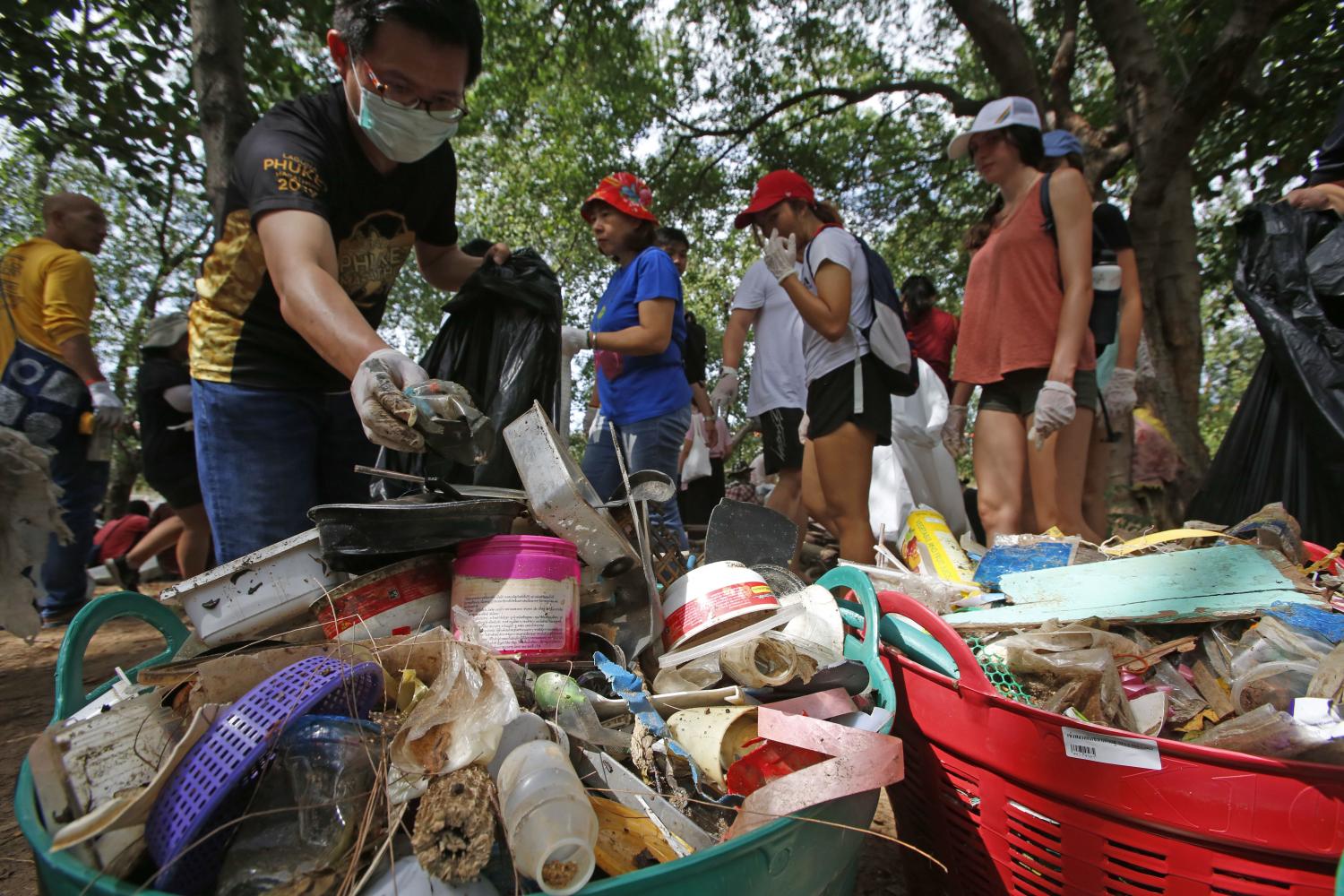
Environmentalists have united in their calls for the government to take decisive action, including an across-the-board ban on single-use plastic bags, to mitigate the increasingly severe harm plastics are causing to the environment and sea lives.
The calls are being echoed following the high-profile death of a baby dugong, Marium, which succumbed to an infection last Saturday exacerbated by ingesting marine plastic waste.
Over the past months, plastic waste has been blamed for killing marine animals. In June, a short-finned pilot whale was found dead on Songkhla's seashore with 8kg of plastic waste in its stomach.
Marium was the 16th dugong to have died in Thailand this year. This record high in deaths has sounded alarm bells for conservationists.
Thon Thamrongnawasawat, a marine ecologist at Kasetsart University, said the government should order an immediate ban on single-use plastic bags which make up a large quantity of plastic waste in the sea.
He insisted it is the best and most effective action to deal with the problem.
He cited a Department of Environmental Quality Promotion figure which showed the country's single-use plastic bag reduction campaign reduces the amount of plastic bags by about 1.3 billion bags per year. However, the department says Thais use on average three plastic bags per day per person, which means around 76 billion plastic bags are circulated in the environment every year.
"Only through swift measures do we stand a chance of stopping the next dugong's death from plastics. I don't see a more effective way," Mr Thon said.
Meanwhile, Tara Buakamsri, country director of Greenpeace Southeast Asia, urged the government to take the issue more seriously by strictly enforcing the law to suppress acts which endanger the environment and animals.
People need to change their behaviour -- protecting the environment and animals goes beyond mounting an awareness campaign, he said. He added that EU countries have imposed a law on marine debris and plastic waste management. However, the Thai government has not done the same while the country's policies on plastic waste management are vague and difficult to implement.
The cabinet has already approved a "roadmap" on plastic waste management, including plans to ban all cap seals in plastic bottle by this year as well as single-use plastic bags before 2022.
However, since the measures being put in place to achieve the bans are voluntary, they might not be effective.
Activists suggested law enforcement with proper punishment should be launched instead.